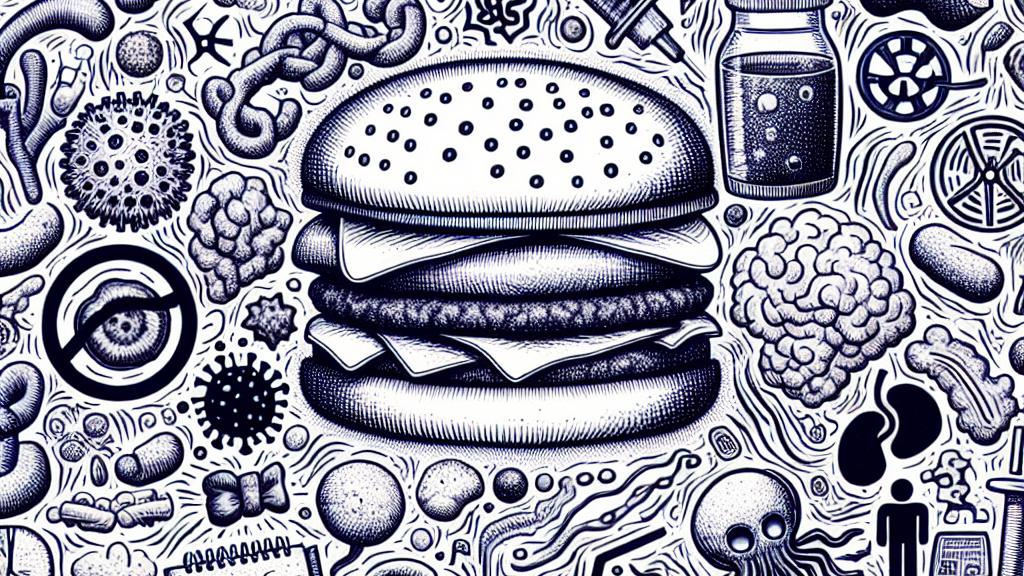The Dangers of Raw Hamburger: A Warning Against Food Poisoning
Overview
- Food poisoning from undercooked hamburgers can lead to serious, life-threatening complications.
- The infamous O157 bacteria is linked to lasting health consequences, including acute kidney damage.
- Neglecting food safety practices when consuming raw meat is a risky endeavor that could have dire health implications.

Incident Overview in Sakai, Japan
The chilling reality of consuming undercooked hamburgers came to light in Sakai, Japan, where a shocking food poisoning incident unfolded at the Shoutaian diner. This event involved the notorious O157 strain of E. coli, a dangerous bacterium known for causing severe gastrointestinal distress and long-term health issues. Many diners, perhaps unwittingly, minimize the dangers associated with undercooked meat, believing that the worst they might experience is a brief bout of diarrhea. However, the tragic story of a girl from an earlier outbreak highlights the risks all too clearly. After contracting O157, she suffered for twenty years with the lasting health effects, ultimately succumbing at the tender age of 25. Such real-life narratives serve as stark reminders that casual eating decisions can lead to catastrophic health outcomes, prompting us all to reevaluate our approach to dining, particularly when it involves raw or undercooked foods.
Understanding O157 and Its Risks
O157 is not an innocuous bacterium; it is a formidable pathogen that can lead to devastating health complications, including Hemolytic Uremic Syndrome (HUS). Often, HUS arises after a person experiences intense gastrointestinal symptoms such as stomach cramps and bloody diarrhea. Yet, the implications of this bacteria extend far beyond those immediate concerns. Take, for instance, the tragic history of the Sakai outbreak. A young girl, originally perceived as recovering, faced life-altering health issues following her initial infection. HUS can cause severe kidney complications, leading to renal failure and necessitating dialysis or even kidney transplants in some cases. Thus, the dangers of O157 are not just theoretical but are real and poignant, emphasizing the urgent need for safe food handling practices and a robust understanding of what constitutes safe dining.
The Importance of Food Safety Practices
Food safety cannot be overemphasized; it is a cornerstone of public health and essential to enjoy a safe dining experience, especially when dishes feature raw or undercooked ingredients. Restaurants must strictly adhere to food safety regulations and take the initiative to educate diners about their food preparation methods. For instance, the Osaka Prefectural Government clearly states that meat should be cooked to an internal temperature of at least 75°C (about 165°F) to effectively eradicate harmful bacteria like O157. Additionally, consumers play a vital role in safeguarding their health. Simple yet effective measures—such as washing hands thoroughly before meals, avoiding cross-contamination, and choosing well-cooked dishes—can significantly reduce the risk of infection. As awareness of foodborne illnesses increases, it is imperative for all of us to remain vigilant and proactive. By prioritizing food safety and advocating for responsible dining practices, we can work together to create a healthier, safer environment for everyone, minimizing the risk of food-related illnesses.

Loading...